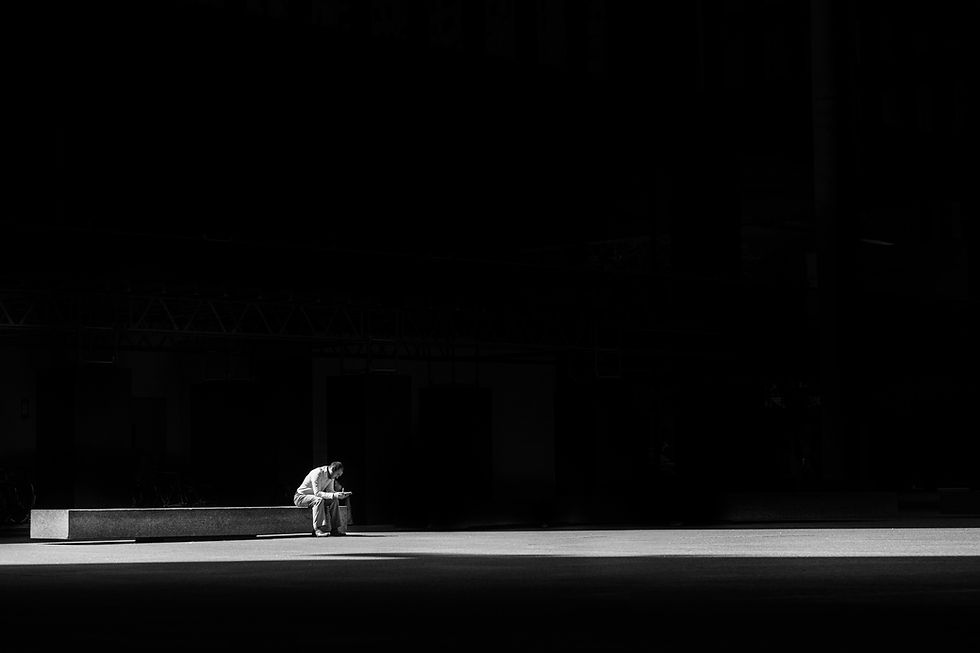The Loneliness Epidemic: Why We Feel So Alone in a Connected World (and How to Find Your Tribe)
- Parts of Us

- Jul 21, 2025
- 3 min read

It's a paradox of our time: we're more "connected" than ever through social media, yet loneliness is on the rise, especially among millennials and Gen Z. You might have hundreds of online friends but still feel a deep ache of isolation. This isn't just a fleeting feeling; it's a growing "loneliness epidemic" that impacts our mental and physical health. Understanding why it's happening is the first step towards building a true community and finding your tribe.

The Rising Tide of Loneliness: What's Happening?
Recent surveys, including those by the Kaiser Family Foundation and Cigna, consistently show high rates of reported loneliness among young adults. This isn't just about being alone; it's the distressing feeling of being disconnected from others, of not feeling understood, or of lacking meaningful social relationships.
So, why are we feeling this way in an age of constant connectivity?
The Digital Dilemma: While social media offers broad connections, it can sometimes replace deeper, in-person interactions. Scrolling through curated lives can also foster comparison and feelings of inadequacy, increasing isolation.
Individualism & Mobility: Modern life often prioritises individual achievement and career mobility. This can lead to frequent moves, leaving established social networks behind.
Busyness & Burnout: The pressure to constantly hustle leaves little time or energy for nurturing deep friendships.
Fear of Vulnerability: The emphasis on perfection online can make us hesitant to show our authentic selves, fearing judgement and making genuine connections harder.
Shifting Social Norms: Less participation in traditional community groups (religious organisations, local clubs) compared to past generations.
The Cost of Loneliness: It's More Than Just a Feeling
Loneliness isn't just uncomfortable; it has serious implications for our health. Research, like studies published in the Journal of Personality and Social Psychology, consistently links chronic loneliness to:
Increased risk of depression and anxiety.
Higher levels of stress hormones.
Poorer physical health outcomes (comparable to smoking or obesity).
Decreased immune function (e.g., Cacioppo, J. T., & Cacioppo, S. (2018). The growing problem of loneliness. The Lancet, 391(10119), 426-427.)
It's a powerful signal that a fundamental human need for connection is not being met.

Building Your "Community Bubble": Practical Steps
Combating loneliness requires intentional action. It's about building quality connections, not just quantity.
Prioritise In-Person Interactions: Make a conscious effort to schedule face-to-face time with friends, family, or new acquaintances. Even short, authentic interactions can make a difference.
Join Shared Interest Groups: Whether it's a book club, a sports league, a volunteering group, or a therapy group, finding activities based on shared passions is a natural way to meet like-minded people.
Practice Vulnerability (Slowly): Authentic connection thrives on vulnerability. Start small: share a genuine feeling or struggle with a trusted friend. This opens the door for a deeper connection.
Be a "Connector": Instead of waiting to be invited, initiate plans. Invite others to join you for coffee, a walk, or an activity.
Cultivate Self-Compassion: If you're feeling lonely, respond to yourself with kindness, not judgement. Recognise that loneliness is a universal human experience, not a personal failing.
Manage Digital Consumption: Be mindful of how social media might be fuelling comparison or replacing real connection. Set digital boundaries to create more space for in-person life.
Seek Therapy: If loneliness feels overwhelming or is rooted in social anxiety, past relationship patterns (Psychodynamic), or difficulty expressing needs, therapy can provide a safe space to explore these issues and build social confidence.
Finding your tribe, or simply cultivating deeper connections, isn't always easy, but it's a vital investment in your overall well-being. You deserve to feel seen, understood, and truly connected.



Comments